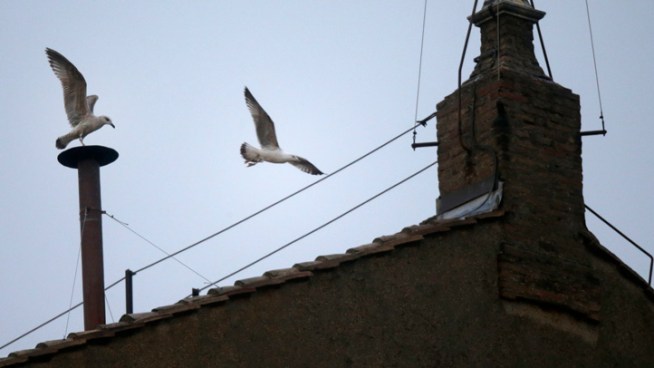Upon yesterday's news that Cardinal Bergoglio had been elected pope and taken the name Francis, a wave of speculation as to what the significance of this name is and what he intends to do as pope. Given how secretive the Vatican is, tea leaf reading is all we have to go on.
Since Bergoglio is a Jesuit, I initially thought he might have been referencing St. Francis Xavier, one of the great early figures in his order and a famed missionary. Although if he was really planning a Jesuit coup at the Vatican (which wouldn't be the worst thing in the world), he might have called himself Pope Ignatius.
It turns out that he is referencing the more well known St. Francis of Assisi. Francis is beloved around the world, even by non-Catholics and non-Christians, because of his love for the poor, his care for creation, and his zeal to reform the church. An early story about Francis is that he heard Jesus saying "rebuild my church", which he first thought meant simply the chapel in which he was praying, but later came to understand it meant the church universal.
Incidentally, it's pretty cool that a couple of seagulls were hanging out on top of the chimney that was being closely watched for white smoke while inside, right about that time, the newly elected pope was taking for himself the name of the saint who famously preached to the birds.
One significance of Francis' papal name I haven't seen referenced yet, other than briefly at the end of Thomas Reese's piece on the National Catholic Reporter, is St. Francis' role as peacemaker and pioneer of interfaith dialogue.
In 1219, in the middle of the 5th Crusade, Francis and his fellow friar, Illuminato, traveled to Damietta, Egypt, and crossed the battle lines to speak with Sultan Malik al-Kamil. While Francis did not convert the sultan or broker peace between the warring civilizations (it's debatable whether he intended to do either), he came back saying that Christians should live peacefully with Muslims and that the two faiths agree on more things than those they disagree on.
The best account of this meeting I've read is Paul Moses' The Saint and the Sultan. The link is to the hardcover edition, but it's available for Kindle, too.
The legacy of mistrust between Islam and the West that began in the era of the Crusades is still with us, so Francis of Assisi's legacy as an interfaith peace-maker is as crucial as it ever was.
Right now there is no way of knowing if Pope Francis had this in mind when he chose his name yesterday. Hopefully, he will sit down for an in depth interview soon and shed more light on which aspects of St. Francis he intends to emulate in his pontificate.
One might be more inclined to read the Christian-Muslim implication into the pope's choice if he were from Africa or South Asia, where Christians and Muslims interact frequently. Francis' homeland, Argentina, is only 2.5% Muslim, according to a 2010 Pew Center report, and South America has the sparsest Muslim population of any continent. Interfaith dialogue in South America tends to be between Catholics and other Christian groups.
Whatever the case, we need more St. Francises (Franci?) in the world. Not just in Rome, but in Nashville, New York, Bejing, and everywhere else. Perhaps this pontiff will inspire a whole new generation to discover the legacy of Francis of Assisi, and perhaps even a few to go and do likewise.
Thursday, March 14, 2013
Subscribe to:
Post Comments (Atom)











No comments:
Post a Comment